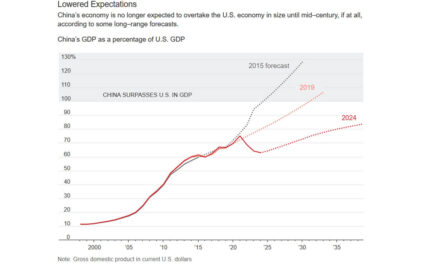
Trump Admin Proposes Rule to Loosen Limits on Short-term Health Care Plans
On Tuesday, the White House unveiled a proposal that would make less-comprehensive and affordable health plans more readily available to the public.
This is the latest move by the Trump Administration to roll back the failing policies in Obama’s Affordable Care Act.
“The proposed rule would loosen restrictions on short-term insurance policies, which are low-cost plans that have fewer benefits and limited consumer protections. Such plans can now only be carried for 90 days, and the new proposal would allow them to extend for a year,” writes the Wall Street Journal.
These types of plans are often restrictive with limits on the amount of care that will be covered and aren’t available to those with pre-existing conditions. They also don’t often offer coverage for prescription drugs.
Under the ACA, individuals were barred from seeking out these short-term plans. Instead, Americans were forced to enroll in ACA plans (which were often extremely expensive) and then were penalized with fines if not enrolled.
The Trump Administration put an end to these ACA’s penalties at the end of last year.
The ACA made it especially expensive for the 7 million Americans who are healthy and did not qualify for tax credits for premiums.
Now, Republican lawmakers are aiming to increase the health care options available today by allowing short-term plans again.
“We want to open up affordable alternatives to unaffordable Affordable Care Act policies,” said Alex Azar, Health and Human Services Secretary. “This is one step in the direction of providing Americans health insurance options that are more affordable and more suitable to individual and family circumstances.”
With more plans available on the market, the more competition there will be and this will lead to lower premiums for all.
“The plans are appealing to consumers because they are cheaper than Obamacare plans. They are also attractive to brokers, because they often pay higher commissions than ACA plans. Insurers like them because their profit margins are relatively high — and are not held to the ACA requirement that they spend at least 80 percent of premium revenue on plan members’ medical care,” writes Kaiser Health News.
“Americans need more choices in health insurance so they can find coverage that meets their needs,” said Azar in a statement. “The status quo is failing too many Americans who face skyrocketing costs and fewer and fewer choices. The Trump administration is taking action so individuals and families have access to quality, affordable healthcare that works for them.”
“We are proposing to give these consumers what they need by working across federal agencies,” said Seema Verma, administrator at the Centers for Medicare and Medicaid Services about the 7 million Americans that were forced to pay high premiums. “The current system is failing too many.”
Verma also said that officials anticipate “virtually no impact” on the premiums for the people still enrolled in exchanges.
Supporters of the rule argue that although these short-term plans are not the best options out there for health-care coverage, Americans deserve to choose what type of plan they are spending their money on and it should not be force upon them by their government.
“It simply reverts back to where the short-term plan rules were prior to Obama limiting those plans,” said Christopher Condeluci, a benefits attorney and tax counsel to the U.S. Senate Finance Committee. “While these plans might not be the best answer, people do need a choice, and this new proposal provides needed choice to a certain subsection of the population.”
However, critics argue that these plans don’t offer sufficient enough health care coverage and will only make it more difficult for those with pre-existing conditions to get coverage.
“Bottom line: This is a green light to discriminate against Americans with pre-existing conditions that’s going to make quality health insurance more expensive and less accessible,” said Ron Wyden, the top Democrat on the Senate Finance Committee to WSJ.
“These proposed short-term plans would actually be long-term scams,” said Brad Woodhouse, campaign director for Protect Our Care and supporter of the ACA. “The Trump administration wants to let insurance companies sell skimpy plans to unwitting Americans and then leave them holding the bill if they get sick or hurt.”
Even though the Trump Administration was unable to repeal and replace the ACA last year, lawmakers are chipping away at its policies.
“The Trump administration has also issued a proposal that would allow small businesses and self-employed people to buy insurance that doesn’t comply with the ACA mandatory benefit requirements. Under another proposal, states would be able to roll back the so-called essential benefits package that plans must cover under the ACA. President Donald Trump last year also ended funding to insurers that helped subsidize some of their mandatory costs under the ACA,” writes WSJ. “Taken together, the changes seek to accomplish a Republican goal of dismantling the ACA and returning more authority and flexibility to the states. Democrats say the actions amount to sabotage that will cause the uninsured rate to rise, and hurt older people and consumers with pre-existing health conditions.”
However, the health care debate is on-going.
“Obviously we’ve got more work to do. This is not the end of our work in this space, of trying to help make insurance affordable and individualized for people,” said Azar.
Author’s note: Limiting short-term coverage was a major priority for ACA advocates. Now, Americans can get cheaper insurance, that may not have the benefits of an Obamacare plan, but they can’t keep it for more than three months. Three months is too short for most individuals. The government should not dictate what insurance an individual invests in monthly. These short-term options may offer very little coverage, but an individual should be able to have it as an option. More options=more competition. This is certainly a good thing considering the high premiums that the ACA created.
Editor’s note: Insurance should indeed be much cheaper. The solution to the problem of “inferior” insurance plans is simple. Any plan that does not meet full coverage should be required to compare its coverage against a full service plan (template approved by the USG) and publish the difference on one page. This way anyone can see why a plan is cheaper without wading through the complexity of a full plan. I’ve gone through this in my book. Click below if you want to see the full solution to the Obamacare problem.























Joe Gilbertson: where are you going with these threats? My free speech is facing intimidation, sometimes physical threats. Is this…
NOT BUSTED. You didn't have to say it. That is what I meant in the above post from me. But…
Just another ruse for taking jabs at Biden through alleged short comings of his. Ten days remaining in Biden's term…
I never said I WANT China to continue to own Panama. You made that up. First,I didn’t say it. Second.…
I absolutely do Not in any way, shape or manner fabricate ANYTHING you say. I do and will always tell…